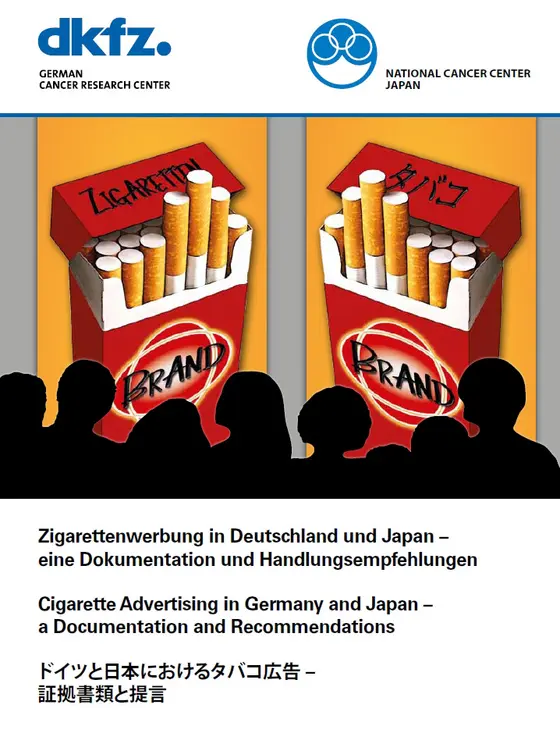It is the first ever report in which scientists of both centers have compared the two countries and highlighted shared problems for public health. “The universal presence of cigarette advertising in Germany and Japan is causing considerable harm to public health in both countries," says Dr. Martina Pötschke-Langer, head of the Division of Cancer Prevention at DKFZ and initiator of the documentation. “Tobacco advertising has an impact on the smoking behavior of children and adolescents, in particular, because they are much more susceptible to advertising than adults. And for smokers, too, it gets harder to quit when you are being tempted to smoke everywhere you go."
The report, which is published in three languages, shows that advertising restrictions in Germany and Japan are insufficient – unlike in most other industrial countries worldwide. In the two countries, the tobacco industry still has abundant possibilities of promoting their harmful products.
Only a comprehensive ban on tobacco advertising of all kinds will protect the public and, in particular, children and young people from the negative effects of cigarette advertising. The World Health Organization (WHO) demands for such a comprehensive ban on all forms of tobacco advertising, promotion and sponsorship in its Framework Convention on Tobacco Control, FCTC). Germany and Japan have signed and ratified this convention, thereby committing themselves to introducing comprehensive advertising bans. Germany and Japan must take action now and turn their international commitments into national law – this is what both cancer research centers recommend.



